Filter by
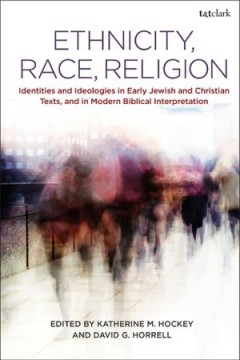
Ethnicity, Race, Religion Identities and Ideologies in Early Jewish and Chri…
Religion, ethnicity and race are facets of identity that have become increasingly contested. The modern discipline of biblical studies developed in the context of Western Europe, concurrent with the emergence of various racial and imperial ideologies. The essays in this volume deal both with historical facets of ethnicity and race in antiquity, in particular in relation to the identities of Jew…
- Edition
- -
- ISBN/ISSN
- 9780567677303
- Collation
- -
- Series Title
- -
- Call Number
- -
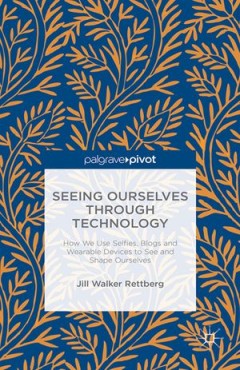
Photocatalytic Water and Wastewater Treatment
This book aims to provide an overview of how photocatalysis can be employed in water and wastewater treatment. Each chapter will attend to a different area of interest, starting with an introduction on the fundamentals of photocatalysis. The covered topics include metal organic frameworks (MOFs), photocatalytic reactor types and configurations, landfill leachate treatment, and life cycle assess…
- Edition
- -
- ISBN/ISSN
- 9781789061925
- Collation
- -
- Series Title
- -
- Call Number
- -

The Believer and the Modern Study of the Bible
"The essays in this volume address the conundrum of how Jewish believers in the divine character of the Sinaitic revelation confront the essential questions raised by academic biblical studies. The first part is an anthology of rabbinic sources, from the medieval period to the present, treating questions that reflect a critical awareness of the Bible. The second part is a series of twenty-one e…
- Edition
- -
- ISBN/ISSN
- 9781618119520
- Collation
- -
- Series Title
- -
- Call Number
- 221.601 BEL
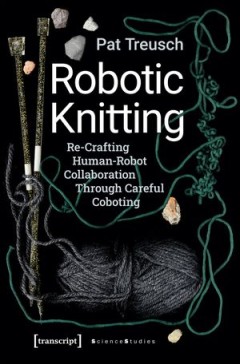
Permeable Reactive Barrier: Sustainable Groundwater Remediation
Remediation of groundwater is complex and often challenging. But the cost of pump and treat technology, coupled with the dismal results achieved, has paved the way for newer, better technologies to be developed. Among these techniques is permeable reactive barrier (PRB) technology, which allows groundwater to pass through a buried porous barrier that either captures the contaminants or breaks t…
- Edition
- -
- ISBN/ISSN
- 9781482224481
- Collation
- -
- Series Title
- -
- Call Number
- -
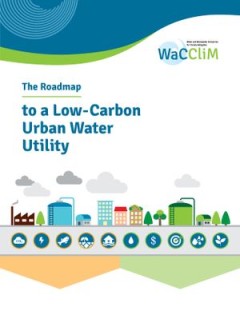
Pathways to Water Sector Decarbonization, Carbon Capture and Utilization
The water sector is in the middle of a paradigm shift from focusing on treatment and meeting discharge permit limits to integrated operation that also enables a circular water economy via water reuse, resource recovery, and system level planning and operation. While the sector has gone through different stages of such revolution, from improving energy efficiency to recovering renewable energy a…
- Edition
- -
- ISBN/ISSN
- 9781789061789
- Collation
- -
- Series Title
- -
- Call Number
- -
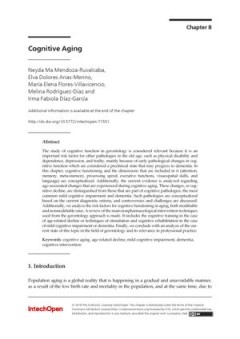
Cognitive Aging
The study of cognitive function in gerontology is considered relevant because it is an important risk factor for other pathologies in the old age, such as physical disability and dependence, depression, and frailty, mainly because of early pathological changes in cognitive function which are considered a preclinical state that may progress to dementia. In this chapter, cognitive functioning and…
- Edition
- -
- ISBN/ISSN
- 9781789232523
- Collation
- -
- Series Title
- -
- Call Number
- -
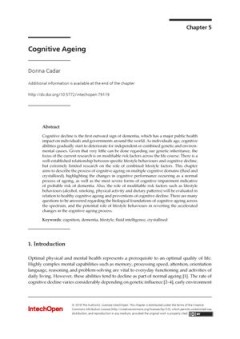
Cognitive Ageing
Cognitive decline is the first outward sign of dementia, which has a major public health impact on individuals and governments around the world. As individuals age, cognitive abilities gradually start to deteriorate for independent or combined genetic and environmental causes. Given that very little can be done regarding our genetic inheritance, the focus of the current research is on modifiabl…
- Edition
- -
- ISBN/ISSN
- 9781789237603
- Collation
- -
- Series Title
- -
- Call Number
- -
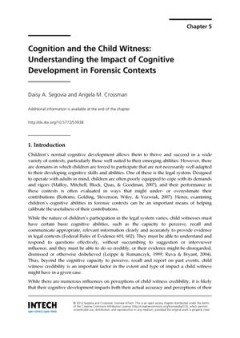
Cognition and The Child Witness Understanding The Impact of Cognitive Develo…
Cognition and the Child Witness: Understanding the Impact of Cognitive Development in Forensic Contexts
- Edition
- -
- ISBN/ISSN
- 9789535108559
- Collation
- -
- Series Title
- -
- Call Number
- -
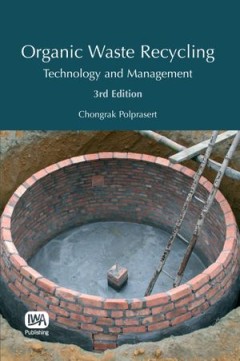
Organic Waste Recycling; Technology and Management - Third Edition
This book covers the principles and practices of technologies for the control of pollution originating from organic wastes (e.g. human feces and urine, wastewater, solid wastes, animal manure and agro-industrial wastes) and the recycling of these organic wastes into valuable products such as fertilizer, biofuels, algal and fish protein and irrigated crops. Each recycling technology is described…
- Edition
- -
- ISBN/ISSN
- 9781780402024
- Collation
- -
- Series Title
- -
- Call Number
- -
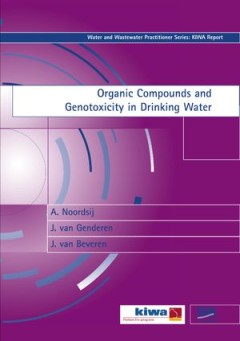
Organic Compounds and Genotoxicity in Drinking Water
Until recently only lipophilic compounds were analysed in any research on the occurrence of mutanogenic and carcinogenic compounds in water. They were isolated using XAD-resins. They contain approximately half of the total organic material present in water. A clear mutanogenic effect was demonstrated for these compounds using Amestest. The hydrophilic fraction of the organic material was diffic…
- Edition
- -
- ISBN/ISSN
- 9781780402598
- Collation
- -
- Series Title
- -
- Call Number
- -
 Computer Science, Information & General Works
Computer Science, Information & General Works  Philosophy & Psychology
Philosophy & Psychology  Religion
Religion  Social Sciences
Social Sciences  Language
Language  Pure Science
Pure Science  Applied Sciences
Applied Sciences  Art & Recreation
Art & Recreation  Literature
Literature  History & Geography
History & Geography